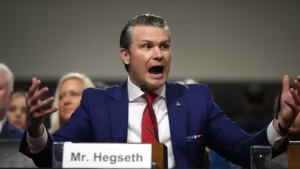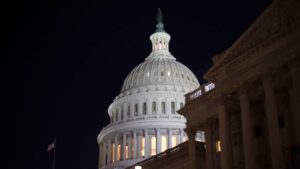Alien Enemies Act Returns: Supreme Court Ruling Sparks Major U.S. Deportation Shift — this unexpected legal move in April 2025 has reignited heated debate around U.S. immigration enforcement and civil liberties. The court’s decision now empowers federal authorities to use a centuries-old law to deport certain foreign nationals, raising urgent questions about constitutionality, national security, and human rights in modern-day America.
What Is the Alien Enemies Act and Why Has It Been Revived?
This section breaks down what the Alien Enemies Act (1798) is, why it was originally created, and why it’s now being reactivated in 2025.
- Originally passed during John Adams’ presidency, the Alien Enemies Act allows the government to detain or deport non-citizens from countries seen as a threat during wartime.
- Historically, it was used in WWI and WWII to target enemy nationals (like Germans or Japanese citizens).
- What’s new: The law is being invoked today — not during a declared war — but against Venezuelan migrants alleged to be gang members tied to Tren de Aragua.
Understanding the Alien Enemies Act
[Alien Enemies Act (1798)]
/ | \
[Original Use] [Modern Use] [Legal Basis]
- Wartime - Non-citizens - Executive Power
- WWII, WWI - Venezuela - National Security
- Gangs - War/Invasion Context
What Did the Supreme Court Rule in April 2025?
This section summarizes the exact details of the 5–4 Supreme Court ruling and what it allows the government to do moving forward.
- The Court ruled to lift a prior block on deportations under the Alien Enemies Act.
- Now allows federal deportations of individuals without standard immigration court hearings.
- The majority opinion says migrants can still challenge their deportation, but only in Texas courts (where they’re detained).
- Justice Sonia Sotomayor’s dissent argues this creates unequal access to justice and undermines due process.
How Does This Affect U.S. Immigration Policy?
Here, we explore how this ruling changes the immigration landscape, what it means for migrants and asylum seekers, and what legal experts are saying.
- This sets a new precedent by using a wartime-era law in peacetime.
- Fast-tracks deportation without standard legal review, raising fears of human rights abuses.
- Critics worry this could expand presidential power too far, undermining the balance of the Constitution.
Immigration law scholars argue this move blurs the line between criminal enforcement and immigration procedure, which typically has more civil liberties protections.
Who Is Most Affected by This Decision?
This part identifies which groups are most vulnerable, especially migrants from specific nations.
- Over 4.7 million Venezuelans have fled their country since 2015.
- Many seek asylum in the U.S., citing economic collapse and violence.
- The Supreme Court’s ruling allows U.S. authorities to deport individuals quickly, particularly those suspected of gang activity, even if they are seeking asylum.
A recent DHS report highlighted that at least 150 individuals with alleged ties to Tren de Aragua were detained at the southern border in the last 6 months.
How Is the American Public Responding?
This section outlines the emotional, legal, and political reactions across the U.S.
- Supporters: View it as a tough but necessary move to protect Americans from violent criminal networks.
- Opponents: Fear it violates constitutional protections and opens the door to future misuse against non-threatening immigrants.
Organizations like the ACLU call the ruling a “partial win” because it still requires notice and access to a federal court — but they’re pushing for legislative limits on executive power.
Conclusion: What Comes Next for U.S. Law and Human Rights?
The return of the Alien Enemies Act represents a critical turning point in American law. Though intended for national security, its modern-day use raises serious questions about how far executive power should reach — especially in non-wartime situations.
The decision’s long-term impact depends on:
- Future legal challenges
- Congressional oversight
- The 2024 presidential election, where immigration will again be a dominant issue
To maintain trust in American democracy, laws created for war must not be casually used during peace. Whether this precedent becomes a standard — or a warning — is now up to U.S. voters, lawmakers, and courts.
[USnewsSphere.com / reu]





